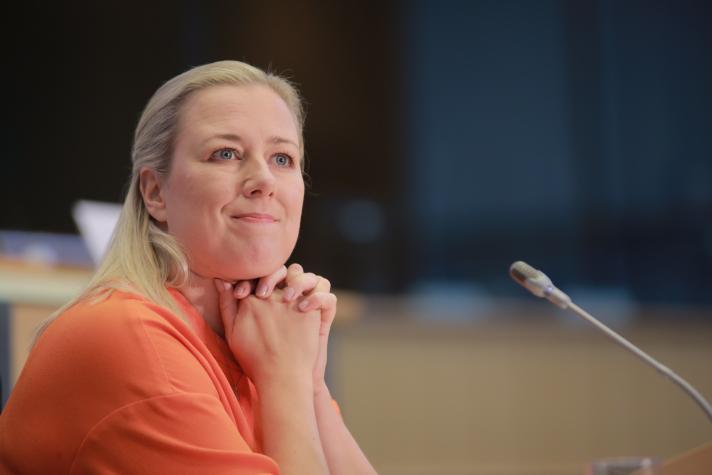On this International Women’s Day, I want to pay tribute to incredible women in the past, present and future with gratitude, pride and determination. Women leaders, women’s organisations and individual hard working women, often on the frontline of the pandemic, have again demonstrated in the current crisis their expertise, reach and ability to lead.
During the lockdown, when domestic violence increased tremendously, women’s organisations have worked so the survivors could access health and justice services. Grassroots women’s rights activists really are the unsung heroes of this world. I am proud that in 2019, 50% of the Spotlight Initiative funds globally were budgeted for civil society organisations.
Equality is founded on education. For girls and women to reach their full potential, they must first get an opportunity to build their skills and knowledge. They must get a good education, and schools must be a safe space where girls can exercise their agency, make their voices heard, and grow in confidence.
Before COVID-19, girls were enjoying better access to education than ever before, even while globally millions of them were still completely excluded from even primary education. The past year has been disastrous also in this regard, reversing decades of progress. School closures have led to girls taking over caring duties, being forced to work, being married off, falling pregnant. Across Sub-Saharan Africa, more than one million girls could be blocked from ever returning to education for this latter reason only.
The positive impact of educating girls radiates absolutely everywhere. It shows as reduced poverty, reduced violence, reduced pressure on the environment, better health, longer lifespans, more inclusive, more resilient societies, and stronger, more peaceful democracies. Education, and especially girls’ education, will be key to the global recovery. That is why I am increasing EU financing of assistance to education in partner countries under my responsibility from 7% to 10%.
Educating and empowering girls and women is a key aspect of the European Union’s blueprint for building a gender equal world, the Gender Action Plan. Launched last November, the plan aims to curb the rise of inequalities in the context of the pandemic, and accelerate progress on gender equality and women’s empowerment. The EU is determined to lead by example, through systematic gender mainstreaming, a transformative approach, and by establishing gender-responsive leadership among all EU actors.
The Gender Action Plan will help empower women and girls to participate and lead equally in social, economic, political life, and have a say in decisions involving them, including on the environment or digital transformation. Participation is key and I look forward to involving young women and girls in my own decision-making process as part of the Youth Sounding Board that I have launched and by appointing a Special Adviser on Youth. Alongside supporting progressive legal reforms, the plan also seeks to create long-term change through concrete actions that change mentalities and address the harmful social norms and stereotypes at the root of gender inequality.
So, I am celebrating today the extraordinary strength and resilience of all women all around the world. Because of the pandemic crisis, you have been asked to carry disproportionate additional burdens while being among the most exposed to its ill-effects. You are all incredible, and I look forward to building a better world together with you.
Jutta Urpilainen
Commissioner for International Partnerships
Details
- Publication date
- 8 March 2021
- Author
- Directorate-General for Communication

